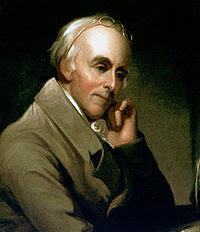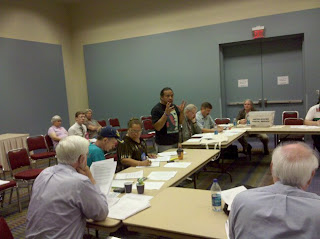We pass along the story below with great sadness. Texas Moratorium Network stands with everyone who faces an unjust sentence, including Mumia Abu-Jamal. There are other ways to build bridges to new potential supporters that do not include forsaking someone who was unjustly sentenced to death. In the recent case in Austin of David Powell, Texas Moratorium Network did not shirk our responsibility to speak out and work hard to try to stop the execution of Powell, just because the Austin Police Association was applying political pressure to ensure that the execution was carried out. Shame on those organizations who signed the memo to the WCADP.
“Throwing Mumia Abu-Jamal Under the Bus”
By Dave Lindorff
CONFIDENTIAL MEMORANDUM to ECPM
from the US members of the Steering Committee of the WCADP Involvement of Mumia Abu-Jamal endangers the US coalition for abolition of the death penalty
ECPM has unilaterally, and over objection, determined to give the Mumia Abu-Jamal case a prominent role in the upcoming 4th World Congress Against the Death Penalty, including the participation of Mr. Abu-Jamal’s lawyers and his direct participation by telephone. The US members of the Steering Committee of the World Coalition Against the Death Penalty do not agree to this, because it will be counter-productive to our effort to achieve abolition in our country.The Abu-Jamal case, regardless of its merits, acts as a lightning rod that galvanizes opponents of abolition and neutralizes key constituencies in the cause of abolition. Continuing to give Abu-Jamal focused attention unnecessarily attracts our strongest opponents and alienates coalition partners at a time when we need to build alliances, not foster hatred and enmity.While Abu-Jamal still attracts some positive attention outside of the United States, it is at a real cost to the US abolition effort. In 1999, the world’s largest association of professional law enforcement officers, the Fraternal Order of Police, announced a boycott of organizations and individuals who support Abu-Jamal. Bills have been introduced in both houses of the US federal legislature condemning the naming of streets for Abu-Jamal. The result is that Abu-Jamal, rather than abolition of the death penalty, becomes the issue and the focus of attention. That is dangerously counter-productive to the abolition movement in the US.The voices of the Innocent, the voices of Victims and the voices of Law Enforcement are the most persuasive factors in changing public opinion and the views of decision-makers (politicians) and opinion leaders (media). Continuing to shine a spotlight on Abu-Jamal, who has had so much public exposure for so many years, threatens to alienate these three most important partnership groups.The support of law enforcement officials is essential to achieving abolition in the United States. It is essential to the national abolition strategy of US abolition activists and attorneys, that we cultivate the voices of police, prosecutors and law enforcement experts, to support our call for an end to the death penalty. It was key in New Jersey and in New Mexico, it is fundamental to abolition throughout the US, and it will be a primary focus for 2010 and beyond. We have begun to make real progress with police officers and prosecutors speaking out against the death penalty as a failed policy.«In a national poll released in 2009, the nation’s police chiefs ranked the death penalty last in their priorities for effective crime reduction. The officers did not believe the death penalty acted as a deterrent to murder, and they rated it as one of most inefficient uses of taxpayer dollars in fighting crime …. “Death Penalty Information Center, The Death Penalty in 2009: Year End Report, December 18,2009. If the 4th World Congress gives Abu-Jamal and his lawyers the focus and attention proposed by ECPM, the US movement for abolition will be exposed to a serious backlash that will directly damage the delicate alliances we are building with essential groups. As international representatives of the US abolition movement, we cannot agree to the involvement of Abu-Jamal or his lawyers in the World Congress beyond attendance.For these reasons, providing Abu-Jamal the World Congress stage will require us to consider how to distance our programs in order to protect our vital alliances with our key partners and constituencies. To be effective ad- vocates within the US we must and will continue our strategic approach to abolition with our core allies and our evolving partners. Featuring Mr. Abu-Jamal’s case as ECPM has proposed presents an unacceptably high risk of fracturing a developing but still fragile alliance with vitally important constituencies – constituencies that can either help our movement reach the goal of abolition or severely hinder our progress.Elizabeth Zitrin (DPF), Renny Cushing and Kate Lowenstein (MVFHR), Speedy Rice (NACDL), Kristin Houle (TCADP), Juan Matos de Juan (PRBA)21 December 2009















![All Things Censored... : Huntingdon And SCI Greene Sessions [Spoken Word]](http://ws.amazon.com/widgets/q?MarketPlace=US&ServiceVersion=20070822&ID=AsinImage&WS=1&Format=_SL160_&ASIN=B00000DFJH&tag=texasabolitio-20)









